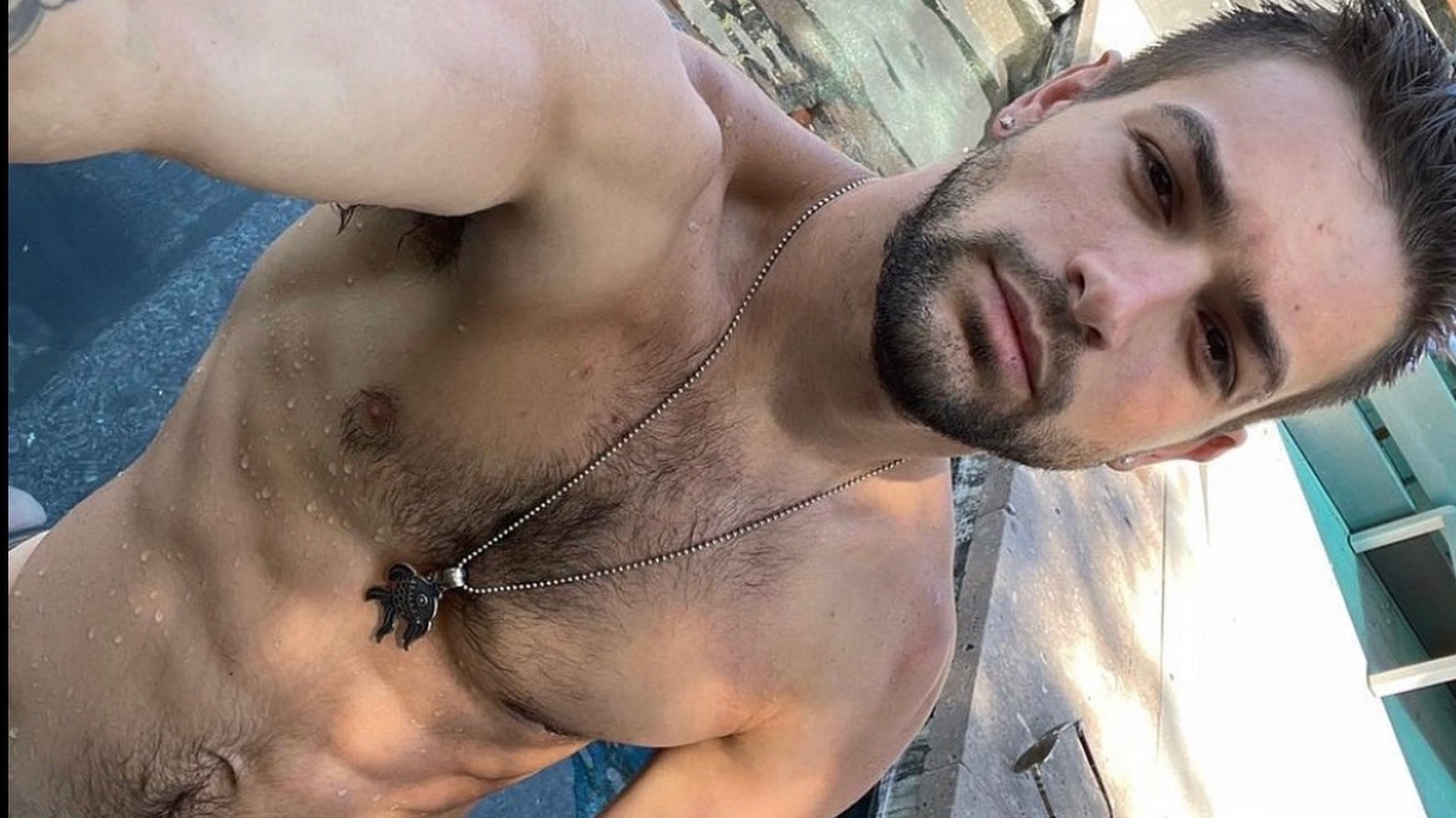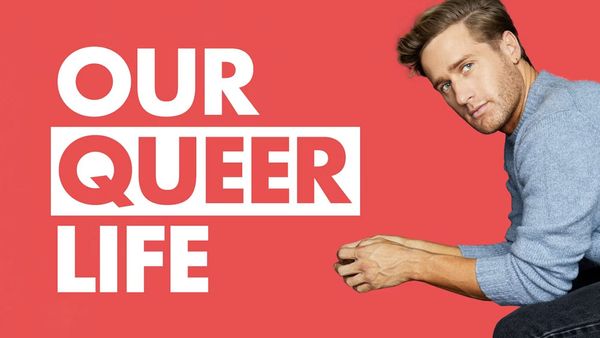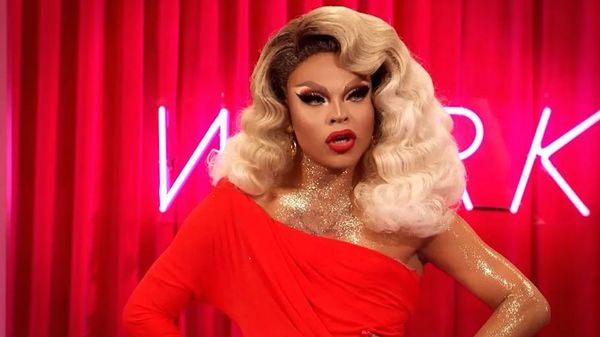September 8, 2013
Boycott: Da! Nyet! :: The Stoli War
Kilian Melloy READ TIME: 9 MIN.
While guests lined up outside the South of Market nightclub Beatbox for last month's local edition of a promotional event, a handful of activists poured bottles of Stoli vodka onto the South of Market street. Actually, it was water, since they didn't want to buy Stoli just to boycott it.
Inside the nightclub, frivolity and free drinks reigned, and Nicola Bettinger , a cute young gay man with a cuter Parisian-themed strip act that left him in a black corset, was dubbed the San Francisco winner of the Most Original Stoli Guy contest.
While most local bars aren't quite as declarative as Beatbox with their Stoli support, many others have declined to honor the boycott of Stoli products.
So, why a boycott? Yes, some people still don't know. Amid escalating reports of anti-gay violence across Russia, Russian President Vladimir Putin recently signed a law, which bans the "promotion" of homosexuality to minors. Vigilantes have posted videos of themselves kidnapping and assaulting gay men.
Worldwide condemnation of the new law, and its resultant violence, was swift. George Takei, the openly gay "Star Trek" star, called for the Olympics Committee to move the 2014 Sochi Winter Games from Russia to Canada. The sports events are scheduled for February 2014.
Oscar winning-film star Tilda Swinton daringly stood in front of the Kremlin sporting a rainbow flag. Her photo of this action went viral. Even President Barack Obama, a staunch LGBT ally, harshly condemned these laws, yet offered no support of a boycott.
Other celebrities have declared their refusal to visit Russia. Bravo Networks' Andy Cohen bowed out of hosting the Miss Universe pageant, scheduled to broadcast November 9 from Moscow. Despite an online petition with 28,000 signatures supporting a move out of Russia, the pageant organizers, headed by Donald Trump, refused to consider relocating the event.
And gay actor Wentworth Miller came out on August 21, citing his refusal to attend a film festival in St. Petersburg.
But did the vodka boycott start this, and is it still viable? The anti-Stoli stance is being led by notables such as Cleve Jones and Dan Savage, who claim that the vodka company is a Russian-owned entity. Here in San Francisco, Stoli has been the primary boycott target by a gaggle of activists, including Michael Petrelis.
But many, including some in the bar and nightclub community, aren't honoring the boycott.
"Moby Dick will no longer boycott Stoli," said Joe Cappelletti, owner of Moby Dick, a popular Castro watering hole. "A boycott of Stoli does not directly impact the Russian government. In regard to SPI, Stoli's parent company, they've been a longtime supporter of the LGBT community worldwide."
Paul Miller, co-owner of the popular South of Market bar Truck, told BARtab that he was also declining to boycott Stoli.
"I don't believe in boycotting," Miller said. "Our problem is not with Russians or Russian things. It's with the policies of the Russian government. Stick to putting pressure points on the Russian government. Russia responds well to international pressure. We want to let Russian LGBT people, who are being isolated and told they're alone, to know that the world is watching, and they're not alone."
Miller said that his customers weren't talking about the situation in Russia as much as he'd like. "People aren't sure what to do," he said. "We need to decide what to do. We need a leader to step up and decide to get something done that can yield results."
Arguments about the boycott have led to almost as much discussion about it as the reason for it. On August 20, the New York Times published "Boycotting Vodka Won't Help Russian Gays," an op-ed by Mark Lawrence Schrad, author of the upcoming book "Vodka Politics: Alcohol, Autocracy and the Secret History of the Russian State." Schard claimed that the boycott is misguided, considering that Stoli's original company is no longer exactly Russian.
Speaking as a representative of the revived Queer Nation New York, gay author John Weir responded to Schrad's piece. "Our goal was never to dissolve the global market of Stolichnaya or to dissolve the extensive Russian investments of its parent company SPI, as if that were possible," Weir wrote. "Rather, we have meant it as a first tactic to spread news of a human rights disaster, and we know that boycotts have been proven historically to be highly effective in accomplishing this aim. Indeed, in the past three weeks, the Russian vodka boycott has focused more attention on the plight of Russia's LGBT people than any other intervention in the past two years."
True, new interest in the plight of LGBT Russians has gained more coverage, and athletes have begun to speak out, but not for a boycott of vodka or the Sochi games. Celebrated gay diving champion Greg Louganis called for support of competing athletes. Athletes who stand a chance to compete in Sochi include openly gay U.S. figure skater Johnny Weir and gay New Zealand speed skater Blake Skjellerup, who have both said that they anticipate being arrested.
At the world athletics championships held in Moscow in August, straight ally and champion runner Nick Symmonds stated, "I respect Russians' ability to govern their people. I disagree with their laws." A Russian pole vaulter (and unofficial 'mayor' of the upcoming Sochi Games athletes' village) supported the law while castigating gays, but then claimed her statements were misinterpreted.
Other athletes' simple gestures were scrutinized, from an innocuous same-sex podium kiss, to intentionally rainbow-painted fingernails. With foreign dignitaries flying rainbow flags in the stands, and the world finally paying attention.
The well-presented vodka-pouring photo ops in New York City, Chicago and West Hollywood may have started a movement. But has the struggle moved elsewhere?
Perhaps the loudest pro-Stoli voice from within the LGBT sphere comes from Patrik Gallineaux, who describes his flamboyant style of dress as being "semi-drag." Gallineaux works for Stoli. His official job description is National LGBT Ambassador for Stolichnaya via Momentum Worldwide. He's in charge of the Most Original Stoli Guy competition and campaign.
"Most Original Stoli Guy is a thirteen city tour recognizing the most original, passionate, and unique leaders of tomorrow within the LGBT community, vetted from thousands of applicants online and via in-person interviews and auditions. All applicants must prove that far beyond physical attributes, they posses dedication to LGBT community development and giving. I personally ask all my staff members for Stolichnaya to donate at least 20 hours per year to community non-profits such as GLAAD and the Richmond-Ermet AIDS Foundation."
Gallineaux stated that efforts by activists like Cleve Jones and Queer Nation New York to paint Stoli as a Russian company are misguided.
"We need to be more thoughtful, enlightened and diplomatic, and to come from a place of love and uplifting people," he said.
But some activists remain undeterred from the Stoli-specific boycott. At an August 3 rally in front of the San Francisco Russian consulate, Cleve Jones stated, "If you don't understand that Stoli's is a Russian company, please go back and do your online research."
That research, mostly from New York activists, insists that Stoli is a Russian company which sells vodka in Russia, despite distilling it in Latvia.
According to Gallineaux, there are two companies named Stoli. One is indeed based in Russia, and its products are available within Russia only. The other Stolichnaya is the company whose vodka is sold in San Francisco gay bars, and is based in Luxembourg. The company also has offices in New York City, which Gallineaux says is populated with executives who are unwavering in their support of the LGBT community.
"I'm half a drag-queen," he says. "This company has accepted me no matter how I present myself."
Among those who support Gallineaux's pro-Stoli stance is Stuart Milk, the openly gay nephew of the late gay SF Board of Supervisors member Harvey Milk, who was assassinated at San Francisco's City Hall in 1978.
"Targeting Stoli was extremely misplaced and anti to the very premise of these organizers stated cause to the boycott call," Milk wrote. "At the end of the day, Stoli is one of the few hopeful community hands that our LGBT brothers and sisters in the Baltic region have to hold onto. The only thing a Stoli boycott will accomplish is a very misinformed and misguided attack on an ally to LGBT people and create a huge setback for entire nations of LGBT people in Latvia."
Gallineaux has a few suggestions that people can do to help Russian LGBT people in lieu of a Stoli boycott. "Volunteer for amazing organizations like Amnesty International, the Harvey Milk Foundation, and take the time to dialogue with Russian friends and not forget the many other corners of the world that need our support and assistance," he said.
But another call for a refocus of efforts fumbled when Stoli's media partners GayCities and Queerty offered to make donations to LGBT charities for every Stoli drink sold at their events. However, none of the recipients had been contacted, and each refused to participate.
Many critics of boycotts have said to listen to Russian LGBT activists. But they may not like what they hear. At a late August meeting New York City's LGBT Center, journalist Masha Gessen spoke before an audience of about 100 concerned people. Gessen recently fled Russia out of concern for the safety of her family, citing how the new anti-gay law could affect LGBT parents and their children.
"One of the best moments of my time was when I was in my car 10 days ago in Moscow and I turned on the radio and they were talking about the vodka boycott on every radio station," Gessen said. "That is getting media attention. It was really, really amazing, Suddenly we'd been granted visibility that we hadn't had in years."
While activists elsewhere are calling the boycott a success, here in San Francisco, the presumed home of liberal politics and gay power, the vodka boycott seems to have slowed to a trickle.
An informal survey of several Bay Area LGBT bars and nightclubs included less than half a dozen who are participating in the Russian vodka boycott, among them Hi Tops, El Rio, and the East Bay's White Horse Tavern and Bench & Bar.
The most active group of protestors have moved on to plans for pickets outside a local Russian Orthodox Church, saying their faith, and Putin's favoritism toward it, is part of the problem with the antigay violence in Russia.
At press time, reports of international protests include 10,000 people marching in Copenhagen against the Russian law, and a coalition of more than 100 Canadian Civil Society groups have demanded "decisive action."
Others are focusing on larger boycotts, of Olympics sponsors Coca-Cola, McDonald's, Visa and other corporations. But it won't be easy. Even as far back as the 1936 Olympics, Coke supported the host country, Nazi Germany, by inventing Fanta, a new beverage, in their honor. Historically, the Olympics, its organizers and sponsors, have prioritized money over human rights.
Whether you support any boycotts or not, the genie of protest is obviously out of the vodka bottle.
(Jim Provenzano contributed to this article.)
Want to chime in? Show your support either way?
Go to BARtab's Facebook page: www.facebook.com/lgbtsf.nightlife
Kilian Melloy serves as EDGE Media Network's Associate Arts Editor and Staff Contributor. His professional memberships include the National Lesbian & Gay Journalists Association, the Boston Online Film Critics Association, The Gay and Lesbian Entertainment Critics Association, and the Boston Theater Critics Association's Elliot Norton Awards Committee.




